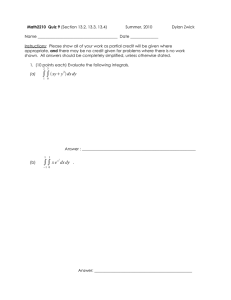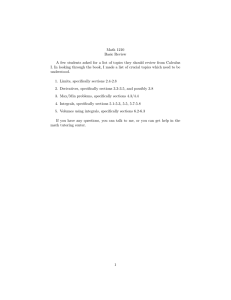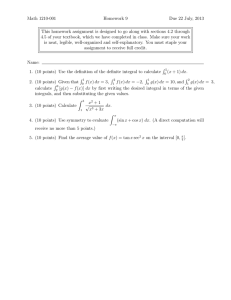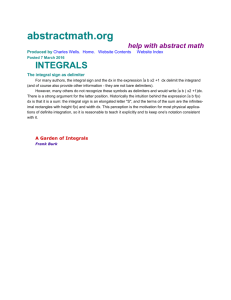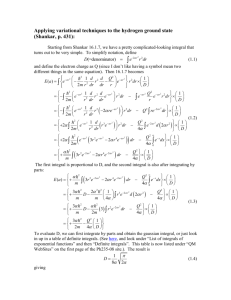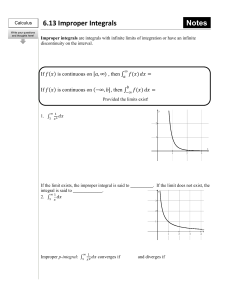advertisement
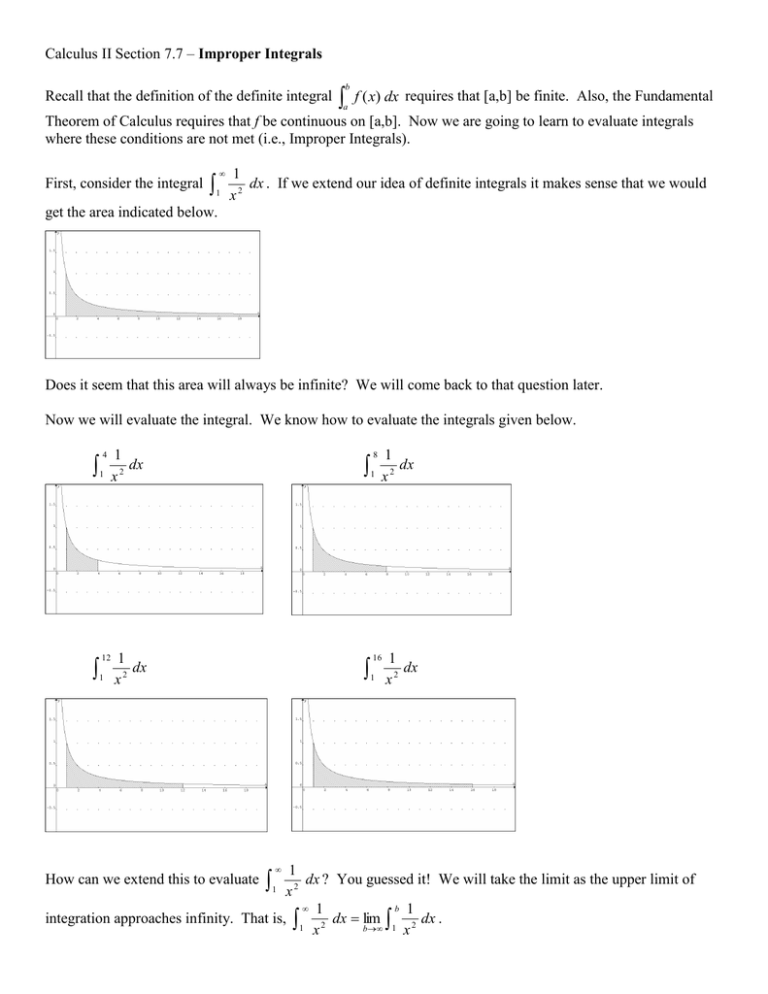
Calculus II Section 7.7 – Improper Integrals Recall that the definition of the definite integral b a f ( x) dx requires that [a,b] be finite. Also, the Fundamental Theorem of Calculus requires that f be continuous on [a,b]. Now we are going to learn to evaluate integrals where these conditions are not met (i.e., Improper Integrals). First, consider the integral 1 1 dx . If we extend our idea of definite integrals it makes sense that we would x2 get the area indicated below. Does it seem that this area will always be infinite? We will come back to that question later. Now we will evaluate the integral. We know how to evaluate the integrals given below. 4 1 12 1 1 dx x2 1 dx x2 8 1 1 dx x2 16 1 1 dx x2 1 dx ? You guessed it! We will take the limit as the upper limit of x2 1 b 1 integration approaches infinity. That is, 2 dx lim 2 dx . 1 x b 1 x How can we extend this to evaluate 1 Evaluate: 1 Now evaluate 1 dx x2 1 1 dx x What makes the difference in the value of the integral? ex dx Now evaluate 1 e 2 x The second type of improper integral is the type where there is a point of discontinuity in the interval [a,b]. The discontinuity could occur at either an endpoint or at a point inside the interval. Example: e 0 Now evaluate ln x 2 dx 1 1 1 dx x2
